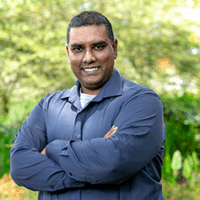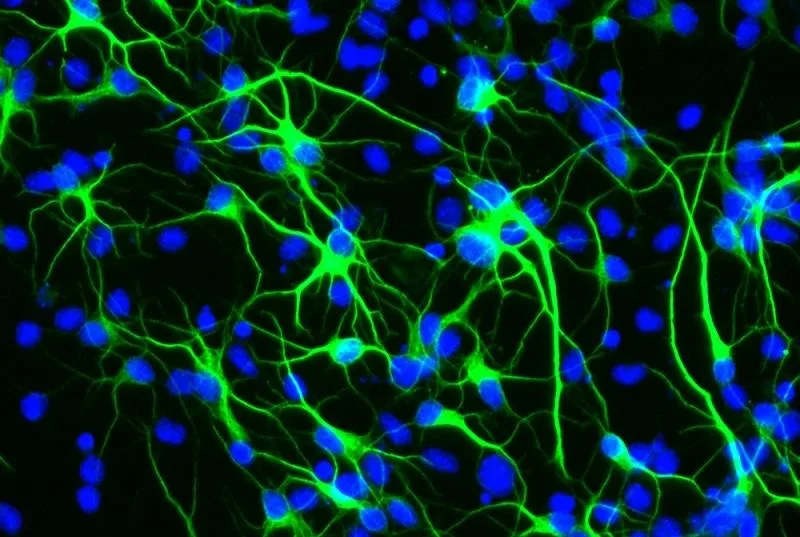This past week, Africa’s premier healthcare event, World Health Expo (WHX) Cape Town (formerly Africa Health), took place at the Cape Town International Convention Centre (CTICC). Right in the centre is Thrive by WHX, which is South Africa’s premier health and wellness experience. The event featured a slew of wellness activations and thought leadership dialogues, such as the World Longevity Summit and the Mind Matters Summit. This conference brings together visionaries, clinicians, researchers, and thought leaders at the forefront of the longevity revolution for two transformative days of insight, connection, and innovation.
One impressive speaker was Prof. Veron Ramsuran from UKZN Howard College, who unpacked the complex relationship between our genes, our environment, and our potential to live longer, healthier lives.
The Genetics of Longevity
Genetics are an integral part of who we are on a biological level, but this then begs the question of how much of our lifespan can be determined by our DNA?
Well, according to the good professor, it’s a combination of what we inherit and how we live.
“There are two types of genetic information that matter,” Prof. Veron explained, adding that the first is the one that we inherit from our parents and grandparents. The second, and possibly most important, is epigenetics, which are the changes that occur on top of the genes and are driven by lifestyle and environment.
“The DNA contribution is about 25 to 30% while the epigenetic contribution can be much higher, because that’s your environmental interaction with regard to your body itself.”

Prof. Veron Ramsuran
Prof. Veron does mention specific genes linked to longevity, such as FOXO3, SIRT1, and APOE, all of which have been linked to cellular repair and controlled inflammation. However, he also reminds us that knowing about these genes doesn’t mean we’re a step closer to living longer. After all, we cannot safely or ethically edit our genes.
“Yet,” he says, “You can change how those genes are expressed through your choices.”
Epigenetics: The Longevity Gene Game-Changer
To better explain epigenetics, Prof. Veron offered a building analogy. “Think of your genes as the foundation of a house,” he said. “You can’t change the number of rooms or floors, but you can add features – better lighting or plumbing, which essentially represent epigenetics.”
An example of this is Prof. Veron’s assertion that even individuals with perceivably ‘bad’ genes can still go on to live long, healthy lives,
“Someone may be at risk for diabetes because they have certain genes that are associated with the disease, but if they adopt healthy habits, like avoiding fatty, sugary foods and exercising quite often, their chances of developing diabetes are quite low.”
He further references a study whereby scientists were looking at turning back the epigenetic clock in lab animals, including mice that had been bred to age rapidly.
“They edited five key epigenetic markers in these mice,” Prof. Veron explained, before sharing how these edits resulted in the mice extending their lifespans significantly, “Mice that would have died in six weeks lived much longer after the treatment.”
This research underscored Prof. Veron’s point that aging is not an inevitable degradation but can be slowed and even reversed with the right choices.
The African Genome: A Missing Piece
Now, despite the importance of long-term genetic investment research and Africa being home to the youngest population in the world, there remains a serious lack of African representation.
“Humankind originated from Africa, so learning about the African genome is important for everybody else’s genomes.”
With the majority of genetic studies being conducted on populations of mostly European descent in high-income countries, this creates a lot of issues not just for the African population, but also for the world.
Studying only European genes means creating medications that have been tested primarily on Caucasian genomes before providing them to populations with different genetic profiles, and thus increasing the risk for adverse drug reactions.
In fact, adverse drug reactions are far more common in African populations than in European ones, as Prof. Veron reveals that South Africa has an adverse drug reaction rate of 25%, compared to just 0.09% in countries like Switzerland and Norway.
“We’re applying a one-size-fits-all model to a world full of genetic diversity,” Prof. Veron warns.
Thankfully, some companies are working to address this issue, such as YourGenes, which has spent 20 years gathering genetic data from African individuals and comparing it within African populations to better understand how African genetics can contribute to longevity.
Taking Control of Your Genes
Genetic research continues to grow, and we as a population may need to wait a while for the science of gene editing and personalized epigenetic therapy to catch up and become easily accessible.
Yet, in the meantime, Prof. Veron suggests that we adopt a simple approach and take control of what we can by changing our diet, reducing stress, and leading an active life. In doing so, we’re giving your genes the best possible chance to support longevity.
“It’s not about perfect genes-it’s about making the most of the ones you’ve got.”



![women [longevity live]](https://longevitylive.com/wp-content/uploads/2020/01/photo-of-women-walking-down-the-street-1116984-100x100.jpg)










